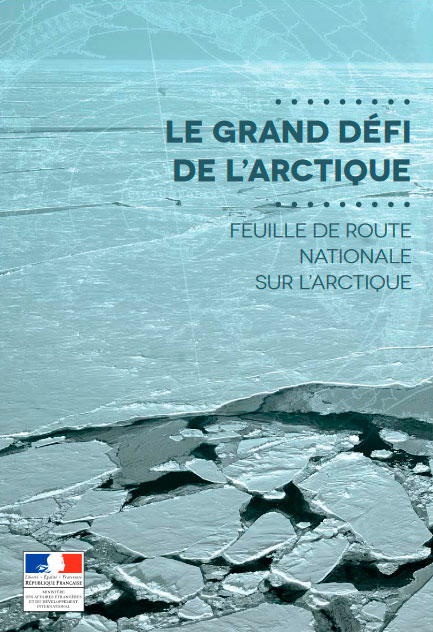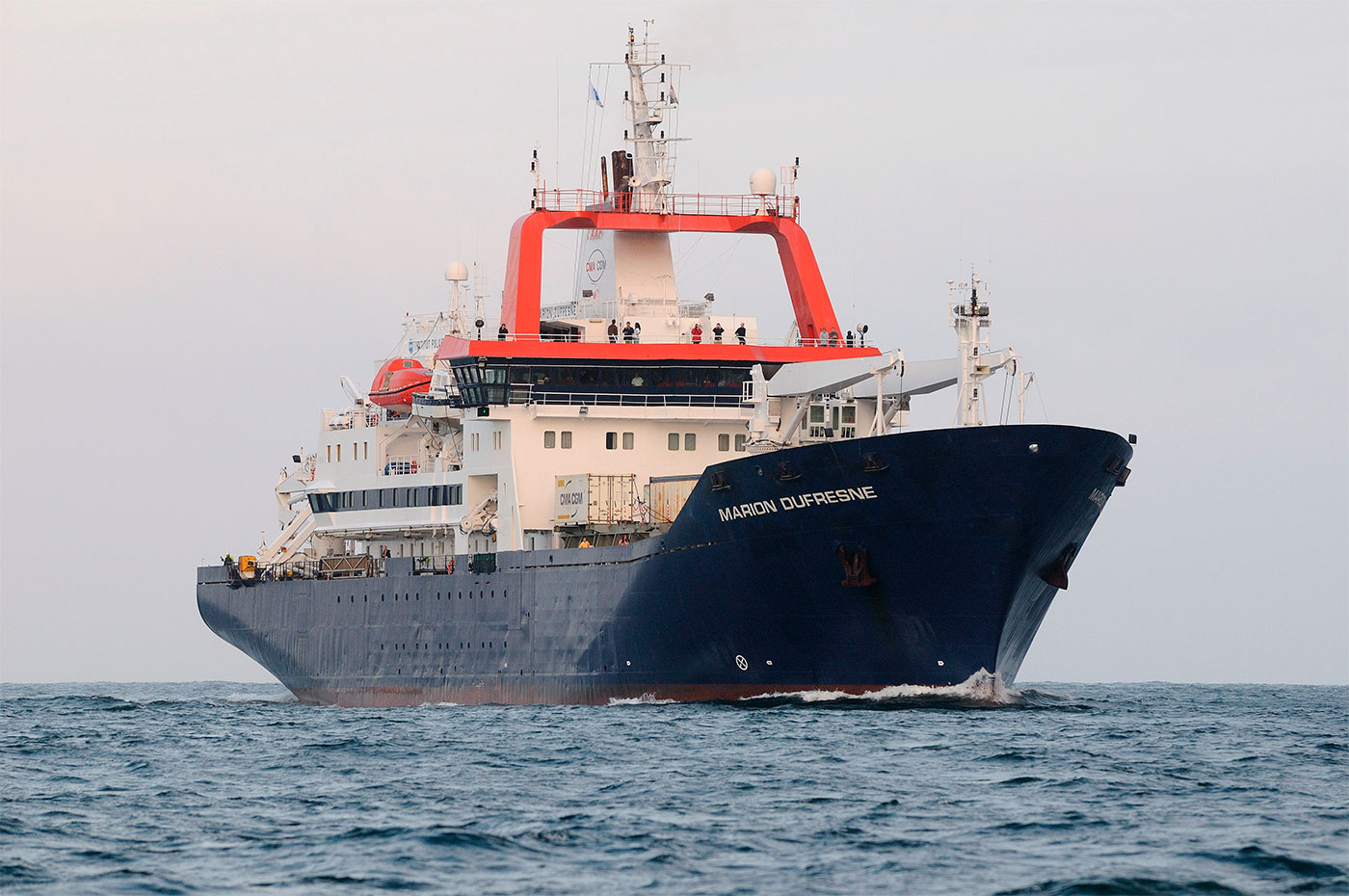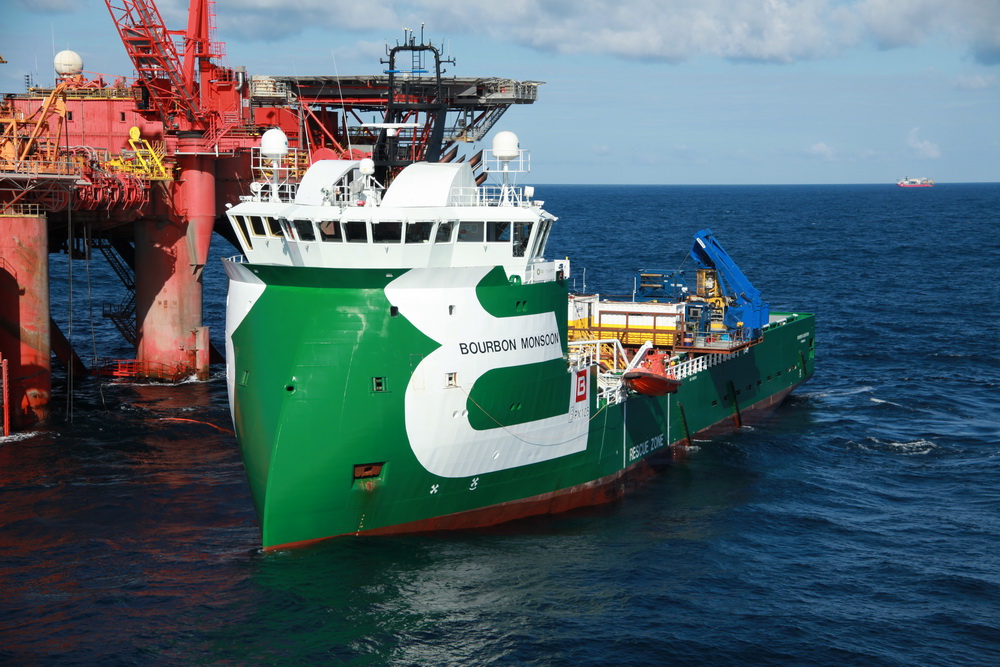France’s New Role in the Arctic
L'Astrolabe icebreaker (IPEV)
(votes: 5, rating: 3.4) |
(5 votes) |
Ph.D. in Political Science, Associate Professor at the Global Politics Department of St. Petersburg State University
In June 2016, France adopted its National Arctic Exploration Programme, which sets out the country’s basic interests in the region and delineates the principal trends and priorities of its Arctic policies in the coming years. In its programme, France defines itself as a polar state and a leading actor in the Arctic, staking its claim to a more active role in the Arctic affairs in the near future. Yet, given the current conditions of Arctic cooperation, will France succeed in fully implementing its strategic goals and tasks? The question remains open.
In June 2016, France adopted its National Arctic Exploration Programme, which sets out the country’s basic interests in the region and delineates the principal trends and priorities of its Arctic policies in the coming years. It is quite logical that this document has appeared: following the Arctic nations, non-Arctic states also began to adopt national Arctic programmes (Germany, Italy, etc.). In its programme, France defines itself as a polar state and a leading actor in the Arctic, staking its claim to a more active role in the Arctic affairs in the near future. Yet, given the current conditions of Arctic cooperation (falling oil prices, the unprofitability of developing Arctic oil and gas fields, the political crisis in relations between Russia – the largest Arctic nation – and the West, etc.), will France succeed in fully implementing its strategic goals and tasks? The question remains open.
On June 14, 2016, France presented its National Arctic Exploration Programme to the French and international public in Paris. The document had been prepared by French diplomats, politicians and academics. The Programme was a logical result of France actively participating in Arctic cooperation over the last few years. At the same time, Paris proceeded from the assumption that the Arctic holds exceptional significance for all the parties concerned, regardless of whether they have a polar coastline.
The Programme defines France as a polar state and a leading Arctic actor. The idea has been supported by politicians over the last few years, most of all by the academic community. According to the French Professor Sébastien Gadal, France’s diplomatic and geopolitical stance is de facto close to China’s concept of a “near-Arctic” state [1]. In other words, France’s geographical distance from the Arctic is not considered a serious obstacle to its participation in Arctic affairs. Moreover, for France, the Arctic is an “environmentally sensitive area” where “national interests should be determined while taking common interests and a sustainable development policy into account.” It is precisely this factor that determines the importance and the need for France to be immediately present in today’s Arctic.
The History of France’s Presence in the Arctic: The Main Stages
Before analysing the text of the National Programme, it is necessary to describe the principal stages in the history of the French presence in the Arctic.
France started to participate in Arctic affairs in the late 18th century, primarily through polar research into land and marine ecosystems, anthropology and ethnography. Academic research had been the main form of France’s involvement in the Arctic until now. Today, about 500 French academics study the Arctic region. France ranks ninth in the world in terms of the number of academic publications on Arctic-related issues. The Institut polaire français Paul-Émile Victor (IPEV, the French Polar Institute) and the French National Center for Scientific Research (CNRS) play the key role in France’s academic activity in the Arctic. Their work is part of the Arctic Initiative National Programme.
In 2000, France was granted permanent observer status in the Arctic Council (AC), and since then, it has been an active participant in its work at all levels, from task forces to working groups. Granting this status, on the one hand, acknowledged France’s merits in Arctic research, and, on the other, hand, it signified the emergence of a new area in French politics and diplomacy.
For France, the Arctic is an “environmentally sensitive area” where “national interests should be determined while taking common interests and a sustainable development policy into account.”
The next event of importance for France’s Arctic presence happened in 2009, when the country officially recognized the significance of the Arctic area for its national interests, appointing the well-known politician Michel Rocard as the French Ambassador on Polar Issues (ambassadeur de France pour les poles). Subsequently, Rocard conveyed to the global public the principal positions of the French leadership on Arctic exploration. Paris proceeded from the basic premise that climate change in the Arctic has global consequences and cannot be managed regionally. Therefore, it has a direct bearing on French national interests; consequently, Paris realized the need to enhance its Arctic presence and to make its interests official. François Hollande stated as much in his speech at the Arctic Circle Assembly in October 2015 in Reykjavik.
In 2013, the thesis of the impact of climatic change in the Arctic was included for the first time in the White Paper on Defence and National Security as a priority in ensuring France’s national security in the era of globalization. In the same year, the decision was made to start drafting France’s national “road map” for the Arctic; the road map was completed in June 2016.
The Principal Tenets of France’s 2016 Arctic Strategy
The National Programme presented to the world public in June 2016 comprises seven sections which consistently describe the principal tenets of France’s long-term Arctic strategy. They also contain practical recommendations on implementing the strategy.
1. Academic research and cooperation.
France intends to expand its efforts and increase financing for studying the Arctic. Current financing for the work of French scientists in the Arctic is clearly insufficient [1], even though intensive research has been recognized as the key element of France’s participation in the Arctic Council and in international Arctic cooperation at different levels. Therefore, the “road map” stipulates involving business community in academic projects in the Arctic; businesses might be interested in developing the region’s economic potential (transportation, air space, navigation, energy, mineral resources, etc.). What is more, French academics pay particular attention to participating in pan-European grant research projects in the Arctic, for instance, in Horizon 2020, a Framework Programme for Research and Technological Development, the EU–PolarNet project, etc. Horizon 2020 is the largest programme in the history of the European Union, with a budget of about 80 billion euros for the period 2014–2020 (in addition to private investments that are to be attracted by the foundation).
2. Economic opportunities and cooperation.
The priority of international cooperation in research and environmental protection in the Arctic is recognized by France, as well as by Italy andGermany.
Mineral resources and using the Northern Sea routes to transport resources, organize tourist cruises, etc., are considered to be France’s priority economic interests in the Arctic. Currently, French companies carry out projects in Canada, Norway and Russia. Areva (a uranium mining project in Nunavut), Bouygues and Colas (renovating Iqaluit Airport) and Ponant (a cruise company) operate in Canada; Technip (underwater engineering projects), GDF Suez (energy), Bourbon Offshore Norway (shipping industry for offshore oil drilling), CMA CGM (commercial freight transportation), and Ponant, Grand Nord Grand Large, 66° Nord (tourism), etc. operate in Norway. In Russia, Total and Technip work on energy projects, and Ponant offers polar cruises. One of the recommendations stipulated in the “road map” involves more active participation on the part of French companies in the Arctic Economic Council, the Arctic Business Forum, the Arctic Business Council, the Arctic Oil & Gas Symposium and other similar bodies.
3. Defence and security issues.
As an EU and NATO member, France acts together with the Arctic zone countries and it is interested in maintaining stability and security in the Arctic space. According to the National Programme, the Arctic is a space of naval manoeuvres. The French Armed Forces has been set the task of using the Arctic space as a transit zone for the navy, the air force and possibly paratroopers. The French Armed Forces participate in NATO military exercises in the Arctic with other NATO countries.
4. Protecting Arctic marine life.
France attempts to limit mining in the Arctic and bring mining in compliance with the environmental tasks set for the region. What is more, France adheres to the multi-target environmental approach to protecting the Arctic marine ecosystems proposed by the United States during its presidency of the Arctic Council (2015–2017). In accordance with that approach, France views the Arctic as a pilot zone for developing green technologies. In particular, France supported the idea of drafting an Arctic Code under the auspices of the International Maritime Organization; France promotes the development of eco-oriented maritime cruise routes and works on projects aimed at limiting the negative influence that navigation has on marine mammals.
5. The French presence at international Arctic forums.
The National Arctic Exploration Programme entails France stepping up its participation in Arctic regional bodies – the Arctic Council, the Barents Euro-Arctic Council, the European Union’s Northern Dimension, the International Maritime Organization, the Regional Hydrographic Commission, the International Hydrographic Organization, etc. France’s participation in multilateral cooperation in the Arctic will allow the country to legitimize itself as a polar state and a leading actor in the Arctic.
6. The European Union and the Arctic.
France supports the European Union in its desire to play a larger role in the Arctic Council. EU countries make a significant academic, technical and financial contribution to the development of the Arctic (in particular, the European Union has invested over 200 million euros in 100 Arctic research programmes over the past decade). Given that contribution, Paris consistently promotes the idea of the European Union taking a more active role in resolving the pressing issues of the Arctic region and speaks in favour of granting the European Union observer status in the Arctic Council in 2017.
A successful combination of its rich experience in polar research and its state-of-the-art technological and financial potential gives France grounds to position itself as a polar state and one of the key Arctic actors.
7. National and common interests in the Arctic.
The National Programme states that France has a broad range of interests in the Arctic, which cover various areas from research and economy to politics and defence, and France intends to support them. France will, in collaboration with other Arctic (Russia, Norway, Canada) and non-Arctic states (Germany, Poland, China, the United Kingdom, etc.) that are interested in developing Arctic cooperation, strive to strike a balance between national and public interests in using the maritime space.
French Strategy in the Arctic: Specific Features
There are several important points in the French “road map.”
First, some stipulations in the French strategy – for instance, promoting the interests of the European Union in the region – appear to be the same for most European non-Arctic states. The priority of international cooperation in research and environmental protection in the Arctic is recognized by France, as well as by Italy and Germany.
Second, like other European non-Arctic states, France cares greatly about its status as an Arctic actor, which is legitimized by its participation in the Arctic Council. At the same time, we should take into account the fact that the status of permanent observer at the Arctic Council is largely symbolic and does not allow its holder to take part in decision-making.
Third, France, unlike other European non-Arctic states, pays particular attention in its strategy to the issues of defence and security and intends to participate actively in this area of Arctic cooperation.
Fourth, as an Arctic Council member, France certainly recognizes the sovereignty, rights and jurisdiction of the Arctic states. At the same time, France calls for active Arctic participation by countries outside the polar zone: China, Poland, South Korea, Singapore and other possible consumers of Arctic resources. Thus, Paris views the Arctic as an area of both national and global interests.
Fifth, France is not entirely satisfied with its observer status in the Arctic Council. It is clearly striving to expand its powers in the decision-making process within working groups and upgrade its status to associated membership. Thus, along with the Arctic Council, the “road map” considers other international forums and institutions. Moreover, French representatives criticize the Arctic Council from time to time for its relative lack of effectiveness in environmental protection and fighting climate change. In particular, Michel Rocard stated several times that the Arctic management system has serious flaws, which are caused, in particular, by its being restricted to the Arctic Council member countries. In Rocard’s opinion, in order to overcome such difficulties, it is necessary to involve interested non-region states in managing the region – for instance, China, South Korea, etc. President Hollande spoke about this at the Assembly in Reykjavik in October 2015.
* * *
Having published its National Arctic Exploration Programme, France has clearly defined its interests and priorities, as well as a vision of the prospects for Arctic cooperation in various areas – from environmental protection to the military and political dimension – and at different levels (national, pan-European, global). A successful combination of its rich experience in polar research and its state-of-the-art technological and financial potential gives France grounds to position itself as a polar state and one of the key Arctic actors.
To implement its goals in the Arctic, France should, in addition to participating in specialized international organizations, develop bilateral relations with other participants in Arctic cooperation. Currently, Norway and Canada are France’s main Arctic state partners. France is already implementing several joint projects with these countries. Despite the fact that France and Russia have common projects in the region, cooperation between the two countries is hampered by the political crisis in relations between Russia and the West. Under these circumstances, Russia–France relations appear to be most promising in the academic research area. As France and the United States have enhanced their positions in the Arctic, and due to their similar approaches to some Arctic issues, we can expect bilateral relations between these countries to develop further.
One of the key points of the French Arctic “road map” is to change the region’s management system by involving non-Arctic states, businesses and civil society in Arctic affairs. Yet this approach, generally typical for most non-Arctic states, meets serious resistance on the part of the Arctic nations. Therefore, the intentions of French diplomacy to radically transform the current Arctic management system do not appear to be particularly feasible moving forwards.
In the near future, French diplomats will channel their efforts into promoting the European Union as a candidate for observer status in the Arctic Council. On the one hand, France is one of the European Union’s leading countries, and its participation in the Arctic Council could enhance its positions in the region. Using the financial potential of the European Union will allow to favourable conditions for France’s efficient participation in Arctic projects to be created. On the other hand, if the European Union is granted observer status in the Arctic Council, it could threaten the independence of France’s Arctic diplomacy. In this case, France risks losing its Arctic actor status.
1. S. Gadal. “French Interests in the Arctic.” // A paper delivered at the Arctic Politics in the 21st century International Round Table. St. Petersburg: St. Petersburg State University, 2015.
(votes: 5, rating: 3.4) |
(5 votes) |








